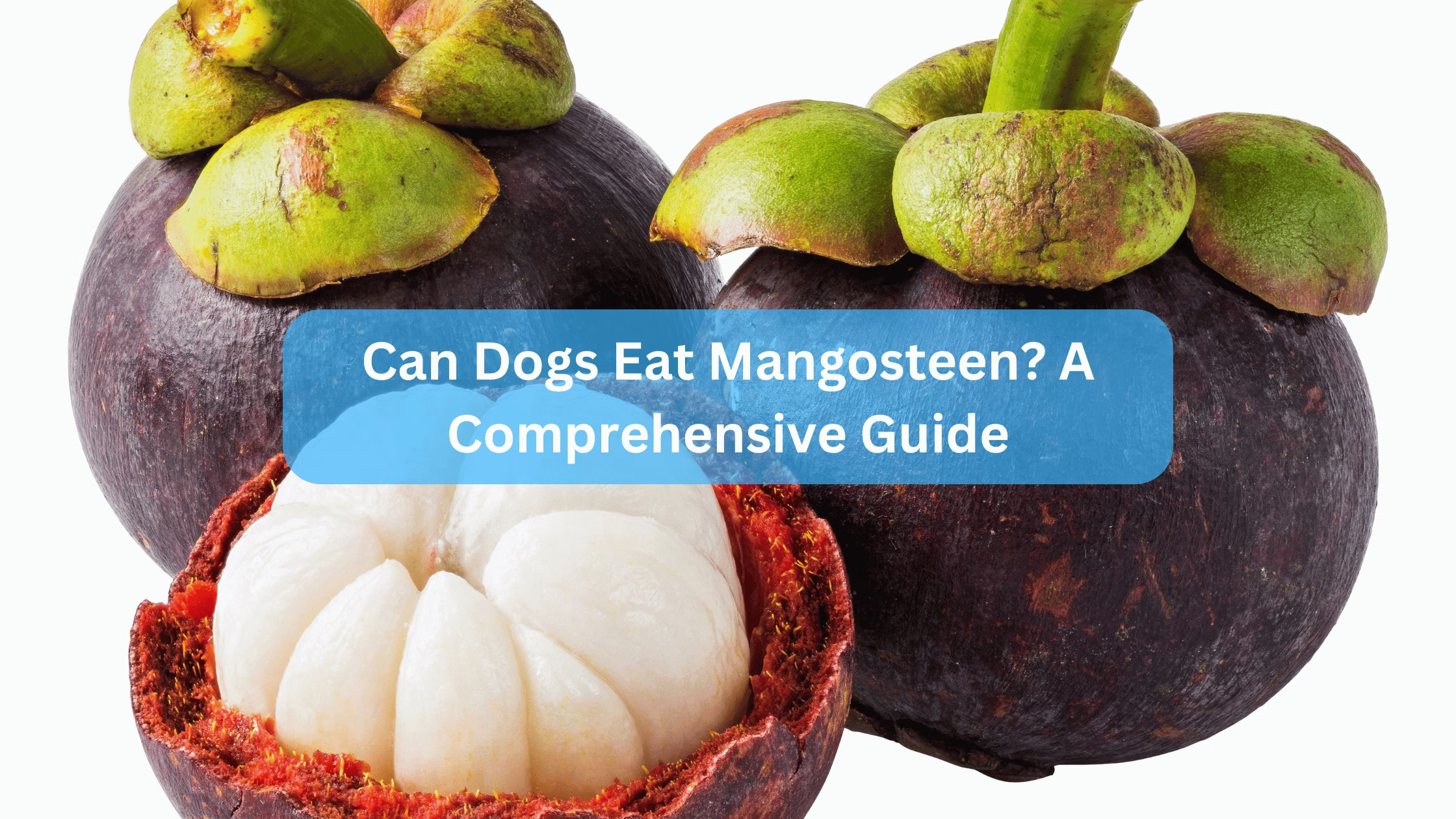When it comes to sharing our favorite fruits with our furry companions, many pet owners wonder about the safety and health benefits of various tropical treats. One such fruit is mangosteen, known for its sweet, tangy flavor and nutritional properties. But can dogs eat mangosteen? Let’s explore the facts.
Introduction to Mangosteen
Mangosteen, often referred to as the “queen of fruits,” is a tropical fruit native to Southeast Asia.
It features a thick purple rind and juicy, white flesh that is both sweet and slightly tangy.
Rich in flavor and nutrients, mangosteen has gained popularity not only for human consumption but also as a potential treat for dogs.
Can Dogs Eat Mangosteen? Is Mangosteen Safe for Dogs?
Yes, mangosteen is generally safe for dogs to consume when prepared properly. This fruit is not toxic to dogs, and many reports indicate that dogs can enjoy it as an occasional treat.
However, it’s essential to consult your veterinarian before introducing any new food into your dog’s diet, especially exotic fruits like mangosteen.
Nutritional Benefits of Mangosteen for Dogs
Mangosteen is rich in several nutrients that can benefit your dog’s health:
- Vitamins: Mangosteen contains vitamin C, which supports the immune system, and B vitamins that aid in energy metabolism and maintaining a healthy coat.
- Minerals: It offers essential minerals such as copper, iron, magnesium, and manganese, which are vital for various bodily functions, including bone health and energy production.
- Antioxidants: The fruit is packed with antioxidants, particularly xanthones, which help combat oxidative stress and promote healthy skin and coat.
- Fiber: Mangosteen is high in dietary fiber, which can aid in digestion and help manage weight by providing a feeling of fullness.
How to Safely Serve Mangosteen to Your Dog
To safely offer mangosteen to your dog, follow these steps:
- Preparation: Remove the tough outer shell and any seeds, as these can be choking hazards and may cause digestive issues. Only the fleshy part of the fruit should be given to your dog.
- Portion Control: Start with a small amount to see if your dog enjoys the flavor. Monitor them for any signs of allergies or digestive upset.
- Occasional Treat: Due to its high sugar content, mangosteen should only be given as an occasional treat rather than a regular part of your dog’s diet. Excessive sugar can lead to gastrointestinal issues or contribute to weight gain, especially in dogs with diabetes or sensitive stomachs.
Potential Risks and Considerations
While mangosteen is not toxic, there are some risks to be aware of:
- High Sugar Content: The sugar in mangosteen can cause stomach upset, diarrhea, or vomiting if consumed in large quantities. Dogs that are overweight or diabetic should avoid this fruit altogether.
- Choking Hazard: The seeds of mangosteen are not only bitter but can also pose a choking risk. Always ensure that only the flesh is given to your dog.
- Allergic Reactions: As with any new food, there is a chance of an allergic reaction. Symptoms to watch for include vomiting, diarrhea, and skin irritations. If any adverse reactions occur, discontinue feeding mangosteen and consult your veterinarian.
Alternatives to Mangosteen
If you’re looking for other fruits to share with your dog, consider these safe options:
- Blueberries: Packed with antioxidants and low in calories, blueberries are a great snack for dogs.
- Strawberries: Rich in vitamin C and fiber, strawberries can be a refreshing treat.
- Bananas: High in potassium and vitamins, bananas are a sweet option but should be given in moderation due to their sugar content.
Expert Opinions and Veterinary Insights
Consulting a veterinarian before introducing any new food into your dog’s diet is crucial.
Many vets recommend introducing fruits and vegetables gradually and monitoring for any adverse reactions.
They can provide personalized advice based on your dog’s health, age, and dietary needs.
Also Read: Can Dogs Eat Goose Meat? A Comprehensive Guide
Also Read: Can Dogs Eat Dove Meat? A Comprehensive Guide
Conclusion
In summary, dogs can safely enjoy mangosteen as a treat when prepared correctly and served in moderation.
This tropical fruit offers several health benefits, including vitamins, minerals, and antioxidants.
However, pet owners should be cautious about the sugar content and potential choking hazards.
Always consult with a veterinarian before introducing new foods to ensure your dog’s health and safety.
By following these guidelines, you can safely share the delightful taste of mangosteen with your furry companion while keeping their dietary needs in check.
Sources:
- https://dogspotlight.com/can-dogs-eat-mangosteen-benefits-and-risks/
- https://www.candogseatit.com/fruit-veg/mangosteen
- https://www.buddydoc.io/blog/can-dogs-eat-mangosteen-benefits-and-risks-of-mangosteen-for-dogs
- https://dogcare.dailypuppy.com/mangosteen-dogs-6850.html
- https://www.pawesome.net/can-dogs-eat-mangosteen/
- https://wagwalking.com/condition/new-food-allergies
- https://www.theconfident-k9.com/the-ultimate-guide-to-fruits-for-dogs/
- https://www.petmd.com/dog/nutrition/what-fruits-can-dogs-eat







